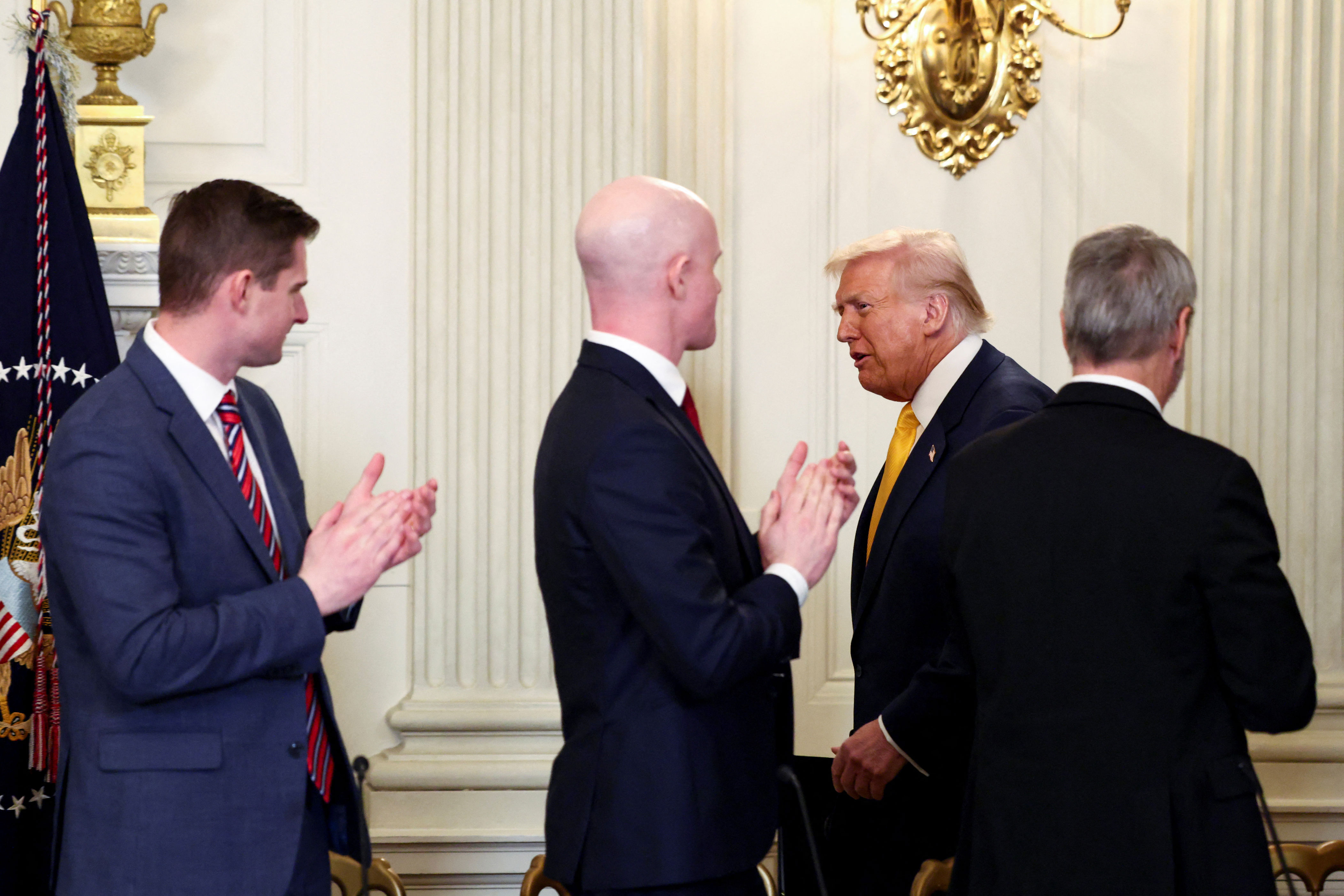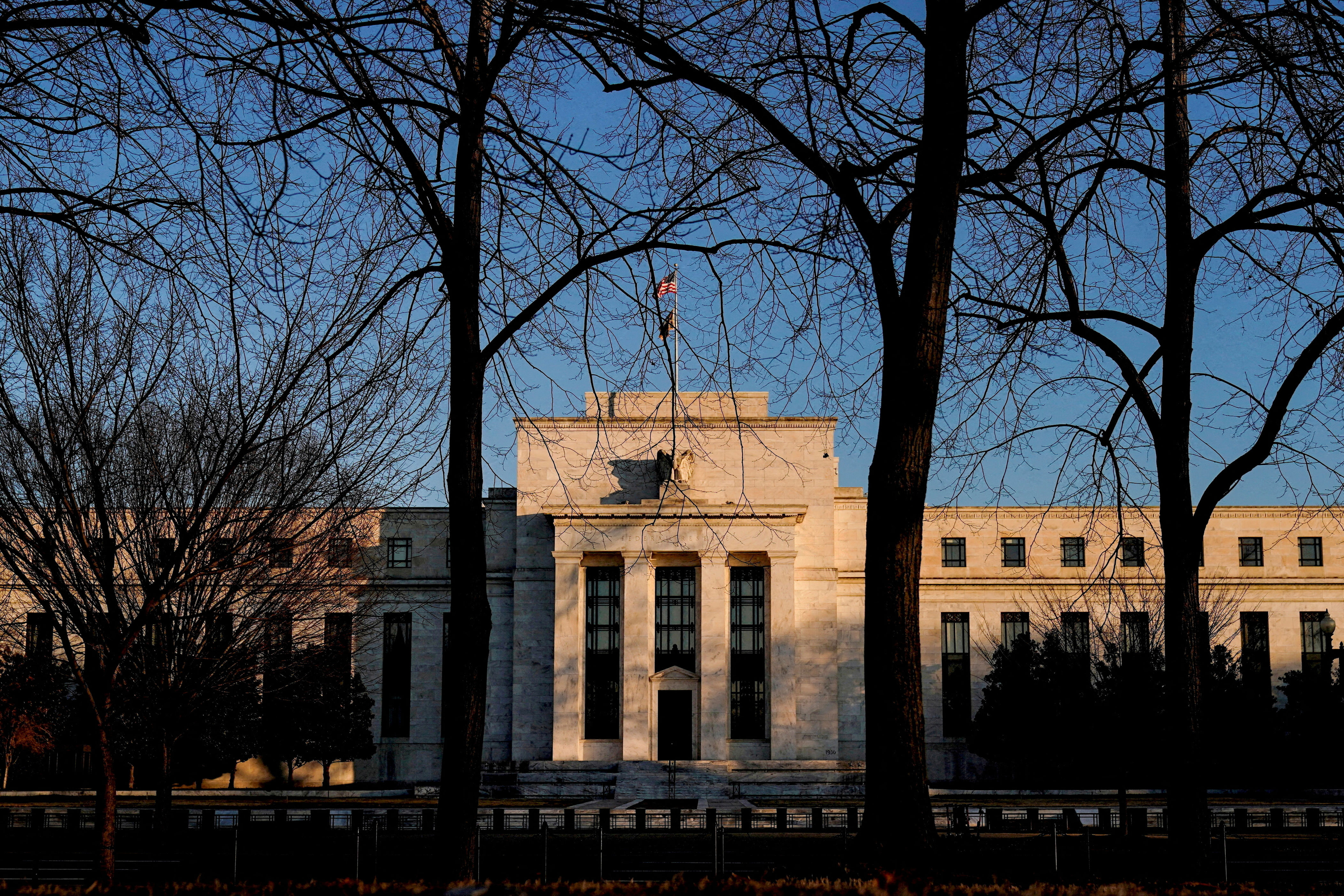Banks, Fintech, and Crypto Clash in the New Era of Trump
The era reminiscent of Trump is witnessing fresh developments in the finance sector, with certain cryptocurrency companies mulling over acquiring bank charters, while several traditional banks are exploring the issuance of their own digital tokens.
The pace is accelerating as the new government eases constraints on cryptocurrency activities and conventional banking institutions.
The most recent indication of this fusion is seen with crypto newcomers Circle, BitGo, and Coinbase Global. COIN ), and Paxos are all either contemplating or planning to pursue a US banking license in some capacity, as reported. a report in the Wall Street Journal.
"A Coinbase representative informed Yahoo Finance that this is an option they are currently contemplating, though no official choices have been finalized," said the spokesperson.

At the same moment, Bank of America ( BAC It has expressed openness to launching its own stablecoin as Congress considers new regulations for these digital assets. Stablecoins are typically linked to other assets, most commonly the U.S. dollar.
"If they legalize that, we'll enter that market," stated Brian Moynihan from Bank of America in February. Bank of America holds the position as the country’s second-biggest loan provider.
Various conventional banks and payment service providers are likewise exploring or contemplating increased participation in stablecoins, ranging from institutions like Standard Chartered to platforms such as PayPal. PYPL ) to Stripe. The financial heavyweight Fidelity Investments has started testing its own stablecoin, as reported by the Financial Times.
Mike Belshe, the CEO of BitGo, told Yahoo Finance, “Some conventional banks will adopt and begin providing cryptocurrency-based offerings directly.” He also noted, “There will be an increased integration between cryptocurrencies and mainstream finance, with firms such as BitGo extending their range to include more traditional financial services.”
The most recent obstacle between banks and cryptocurrency that was removed under the Trump administration occurred last week when the Federal Reserve withdrew guidelines advising financial institutions against engaging with digital currencies.
As a consequence, lenders now have the freedom to proceed with crypto-related endeavors without obtaining prior authorization from the Fed.

The regulatory framework for stablecoins that the Trump administration aims to get Congress to approve this year might be pushing certain cryptocurrency companies to pursue banking licenses. This proposed legislation under consideration by legislators could potentially mandate that stablecoin issuers obtain charters or licenses.
A representative from Circle stated in an email to Yahoo Finance, 'Circle has no plans to transform into a bank or another type of insured depository institution.' They further explained, 'However, we aim to adhere to any forthcoming U.S. regulatory guidelines for payment stablecoins, which might necessitate obtaining either a federal or state trust charter or some form of nonbank license.'
Bank charters could potentially provide cryptocurrency companies with a means to mitigate the risk of legislative delays in Washington DC and achieve greater acceptance, as stated by Bloomberg. report .
“A banking license is a privilege,” said Daniel Hartman, a lawyer specializing in finance at the law firm Nutter and formerly the legal advisor for the Federal Reserve Bank of Boston, during an interview with Yahoo Finance. “Being part of that system significantly enhances one’s reputation,” he further explained.
In recent times, certain banks have focused on providing specialized cryptocurrency services. This strategy was financially rewarding for a period when Bitcoin along with other digital currencies gained traction during the pandemic.
Ultimately, the move was thwarted in the aftermath of the 2022 collapse of crypto exchange FTX and the 2023 collapse of crypto-friendly lenders Silvergate and Signature Bank. That series of events posed something of a taboo in the eyes of regulators for lenders looking to try a similar strategy.

However, this taboo is diminishing in the new Trump era as numerous fintech companies and lenders aim to capture a portion of the cryptocurrency market, with a particular focus on stablecoins.
"For about ten years, we have been eager to develop this product, and it’s finally coming to fruition," said Stripe CEO Patrick Collison. said in a post on X last Friday.
In February, the fintech company acquired the stablecoin platform Bridge and is currently piloting stablecoin payment solutions designed specifically for businesses located outside of the U.S., U.K., and European Union.
Last week, PayPal, which is currently the biggest fintech company to launch a stablecoin, declared its intention to provide customers with a yearly return of 3.7% when they hold its stablecoin. PYUSD ) through its payment application, Venmo. Additionally, Coinbase has recently eliminated charges for individuals aiming to purchase or trade this asset on its platform.
Circle, which issues the globe’s second biggest stablecoin (USDC), also disclosed that several banks such as Deutsche Bank, Santander, and Standard Chartered are providing counsel on developing a novel cross-border payment system touted as an alternative to SWIFT.
Last month, World Liberty Financial, a recently launched cryptocurrency company supported by President Trump and his offspring, announced intentions to introduce a U.S.-dollar-backed stablecoin in collaboration with BitGo.
“If nobody back then would’ve believed we’d reach this point within just half a year, yet here we are,” remarked Belshe, CEO of BitGo, discussing the rapid integration between cryptocurrency and Wall Street following Trump’s electoral win.

David Hollerith is a senior reporter for Yahoo Finance covering banking, crypto, and other areas in finance.
Click here for an extensive examination of recent developments in the stock market and the factors influencing stock prices.
Explore the most recent financial and business updates provided by Yahoo Finance.
0 Response to "Banks, Fintech, and Crypto Clash in the New Era of Trump"
Post a Comment